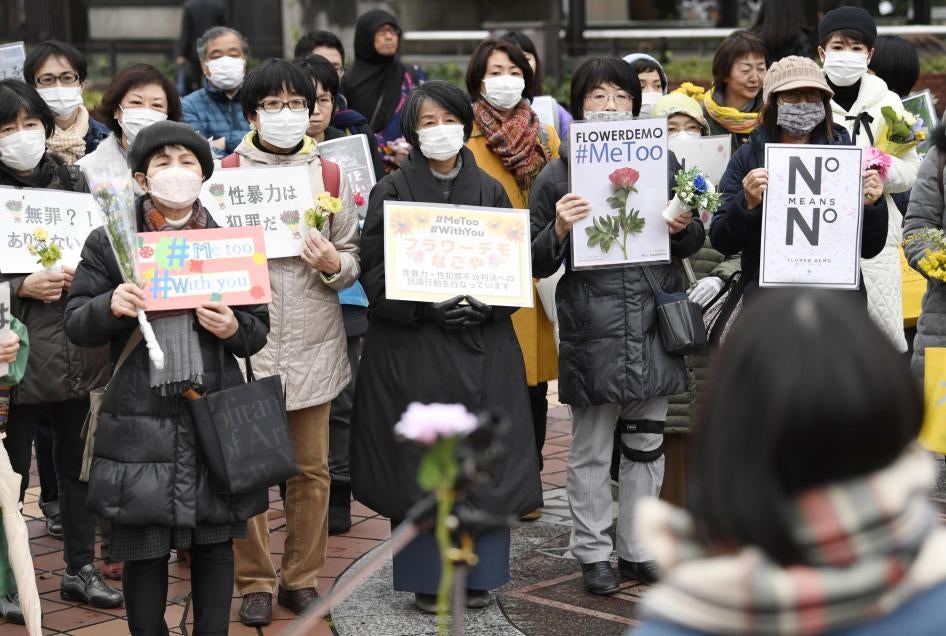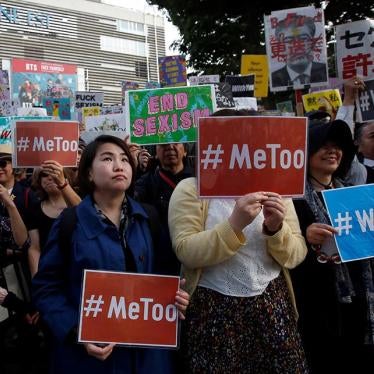A landmark bill now before Japan’s upper house of the Diet would revise the penal code’s definition of rape to include “nonconsensual sexual intercourse.” The bill, which may be voted on by June 21, will revise the country’s legislation on sexual violence only for the second time in a century.
The bill would also increase the statute of limitations for reporting rape from 10 to 15 years and raise the age of consent from 13 to 16, without criminalizing consensual sexual behavior by adolescents close in age. However, survivors have criticized the bill for not providing a simple and clear definition of rape as nonconsensual intercourse, instead laying out eight scenarios in which a victim might be unable to consent.
Amendments were made to Japan’s penal code in 2017 to expand the definition of rape, but it still falls short of international standards. Japanese law narrowly defines rape as forcible sexual intercourse through “assault or intimidation,” or by taking advantage of “loss of consciousness or inability to resist.”
The United Nations special rapporteur on violence against women urged governments in a 2021 report to harmonize national legislation with human rights standards, stating that “[l]ack of consent by the victim should be at the center of all definitions of rape.”
In Japan, suffering sexual violence brings stigma and shame, often leaving survivors reluctant to come forward. A 2021 government survey showed that only about 6 percent of men and women reported an assault to the police, and nearly half of the women said they couldn’t do so because of “embarrassment.”
Survivors have also described how police humiliated and revictimized them while taking their testimony, and even tried to convince survivors to drop cases. As many media outlets have reported, the legal threshold of “assault and intimidation” also excludes a large portion of cases that have led to acquittals.
The Japanese government should revise its law on rape and sexual violence to comply with international human rights standards, starting with taking a survivor-centered approach. Access to justice for rape survivors requires a definition of rape based on lack of consent. Police should be trained to receive testimonies without revictimization. Prosecutors should be committed to bringing perpetrators to justice and ensuring all survivors can access services and support.










